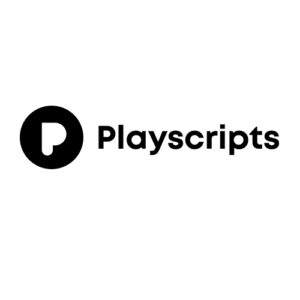
Playscripts met with author, Jonathan Dorf, at Florida Thespians! Learn about Jonathan’s path to becoming a writer, about his work, and what aspiring writers can take away from his success.
As a kid, I read a lot. And by a lot, I mean, for example, that we’d be on a cross-country trip and have to stop at a bookstore because I had already read everything we’d brought. My dad was a librarian, and my mom was very active in journalism in college (though she ended up becoming a social worker), so reading was something that came naturally.
I started writing in elementary school—short stories—but the real catalyst for my writing was meeting Tom Williams as a sophomore in high school. Tom was an English teacher, but more important (at least for me), he was the school newspaper advisor. At the end of that year I became the editor, a position I held until graduation. Tom grew to become a close friend, and as a writer himself, he encouraged me. In addition to my newspaper writing, I wrote poetry (Tom’s specialty), and he and I wrote songs together.
In my junior year, he suggested that since I’d done everything else, I should try writing a play. So I did—The Storm—and Tom helped connect me to Phil Charron, who directed it as part of the school’s senior one-act festival. It was pretty derivative of Eugene O’Neill’s The Iceman Cometh, but sitting there watching the performers—and watching the audience watch it and react—I was hooked on that feeling. The next year, I wrote another play for the festival, and when I graduated and went off to Harvard, I wrote many more plays—some good, some not so good, but I kept going, and here we are.
I’ve been fortunate that 4 A.M. has resonated with so many people. It’s hard to say definitively “this is why you connect to it,” because everyone is different. For some, it may be simply having lived that moment of being awake at 4 A.M. and, when they see the characters trying to navigate what I sometimes call “the magic hour” (it feels like it’s not quite night and not quite morning), seeing a bit of their own experience.
But I’ve also heard from those for whom one of the play’s themes or a character’s experience really hit home for them.
The play’s refrain, “is anybody out there?” is emblematic of the struggle that many people, particularly young people, face as they search for connection with others.
Particularly in this world of increasingly isolating technology. For this reason, the Fire Kid monologue, about a teen who calls 9-1-1 after a car catches on fire across the street but then feels completely shut out of the subsequent emergency, speaks to many.
Also, because many teens have struggled with depression, they connect to the journey of Jake (or Jane), the teen who has attempted suicide. Jake (Jane) finds solace in the words of Frankie, the short-wave radio DJ who isn’t sure anyone else is even listening. Finally, for still others, it may be the play’s exploration of the connection between our fears and our dreams—most of us have had a Monster Under the Bed at one time or another.
While I’d be happy to spend time with my characters—I’ve always wanted to give Jake a hug and tell him it’s going to be OK—I’m not sure that I’d want to be one. Having said that, the Fire Kid in 4 A.M. is actually based on my own experience. The only difference is that it happened at 5 A.M., not 4 A.M. But I woke up to find these lights dancing on my bedroom wall and the room feeling oddly warm. I got up, and outside, on the other side of the street, a car was literally on fire.
Each time the fire hit a new pocket of fuel, there’d be another explosion, and the fire would jump 15 or 20 feet in the air. I quickly called 9-1-1, and the fire trucks and police were there within minutes. And that was it—like the Fire Kid, I was out of the picture. The Fire Kid monologue doesn’t tell us what happened to the car, since that wasn’t the point, but in case you were wondering… Around 8:30 A.M., the city towed the burnt-out car, leaving blackened pavement underneath it.
A couple hours later, as I was coming back from the gym, I saw a couple guys nearby looking confused—apparently they were the owners of the car. Together with someone else from my building, I talked to them briefly, letting them know that the car, which was a Mercedes worth more than $150,000, had been towed. While I’m not happy that it happened to the people involved, I’m happy that I got to witness some portion of it, and for the inspiration it provided.
I’m juggling a number of different plays right now. They’re mostly in the brainstorm phase, which can last anywhere from weeks to months. There’s so much to write about, and the challenge has been to force myself to commit to finishing one first. I’d been wanting to write a play that deals with ethnicity and immigration for a while, as well a parody of a popular play for which I have a pretty slammin’ title, but then Marjory Stoneman Douglas happened.
I have two school shooting-related plays I want to write, though the challenge with something like that is to avoid writing a lecture disguised as a play, so I’ve been working through it all carefully.
I’ve actually started writing the first one, and as I was writing in bed the other night before bed—I think I may finally have stumbled onto what holds it together. We’ll see.
Also, not long ago, I wrote The Magic Hour which revisits the characters from 4 A.M. a year later and stands on its own or plays together with the original play. This year, a British youth theatre is bringing The Magic Hour to the Edinburgh Fringe, and I’m excited to be joining them there. Finally, I also just finished a short film that I wrote and directed, Music, about a college student struggling with mental illness, and we’re currently in the process of applying to film festivals.
I have two pieces of advice. First, the most important thing to remember as a new playwright—or indeed, as a not new playwright—is that plays are written to be produced.
Whenever you’re writing something, ask yourself, “How is this actually going to work on stage?”
That can mean everything from making sure you’ve thought through how that set or costume change is going to be possible to keeping your characters from dropping the f-bomb (or other bombs) in your play for middle schoolers.
The second important thing to remember is that playwriting is a business. Writing a good play isn’t enough. You have to know how to present it in a professional way (learn proper format!) and how to market it. Even if you’re fortunate enough to get your work published, that doesn’t mean you’re done. Yes, you now have a great marketing partner, but you still need to be the chief marketing force for your brand. That’s right—you’re a brand. So create a website and a social media presence and get yourself out there—and while you’re at it, write something new.
Interview With A Playwright – Kathryn Funkhouser
Taryn Temple – Playwright Of The Hit Comedy “The Princess Capers”


Playscripts, Inc. brings new plays and musicals to professional, school, community, and college theaters to perform, read and enjoy. These plays represent a great diversity of voices, styles, and stories and offer a fresh perspective on the human experience. Playscripts, Inc. understands the extraordinary role of a playwright as artist, business person, and marketer. We operate under the idea that, "What is good for the playwright, is good for Playscripts." Playscripts, Inc. strives to curate a catalog of plays that meets the needs of theater makers, and exceeds the expectations of audiences. We are at the forefront of play publishing, providing a unique and extensive suite of services for playwrights and customers alike. Using technology, innovation and creativity, Playscripts, Inc. forges connections between playwrights and new audiences. Nik Sorocenski from Playscripts regularly interviews playwrights about their writing and has kindly shared his work with TheatreArtLife.
Read Full Profile© 2021 TheatreArtLife. All rights reserved.

Thank you so much for reading, but you have now reached your free article limit for this month.
Our contributors are currently writing more articles for you to enjoy.
To keep reading, all you have to do is become a subscriber and then you can read unlimited articles anytime.
Your investment will help us continue to ignite connections across the globe in live entertainment and build this community for industry professionals.